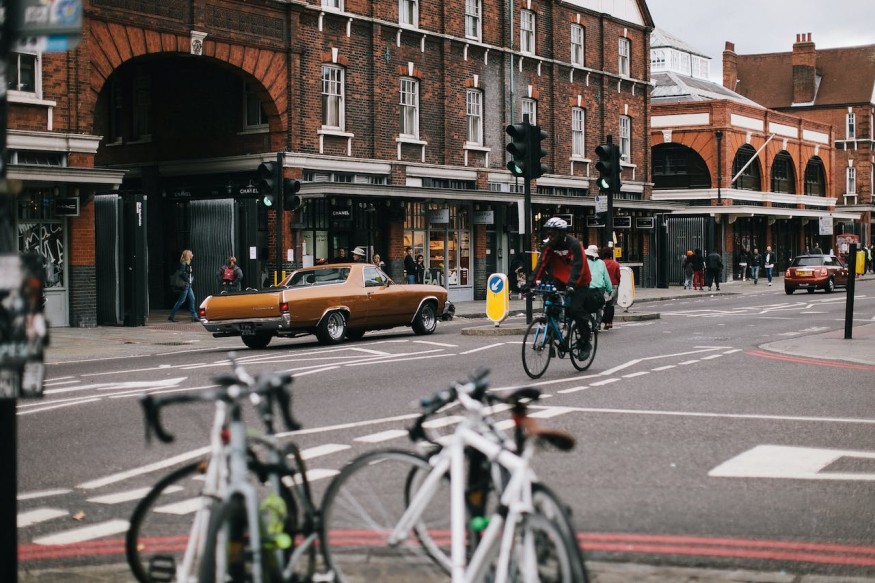Cycle Tourism: How Bike-Friendly Destinations Are Attracting Travelers Worldwide

Cycle tourism combines the love of cycling with the exploration of new destinations. It is a growing movement attracting a diverse range of travelers seeking a more immersive, sustainable, and personal connection with the places they visit.
Igor Makarov, renowned as a business magnate, understands the allure of cycling through new terrains, as he had a deep-rooted passion for cycling at an early age. Born in Turkmenistan and rose to prominence in the business world, Makarov's roots in cycling run deep. It traced back to his days as a member of the USSR national cycling team and founder of Swiss-registered professional cycling called Katusha Team, whose love for cycling transcends the sport.
For him, it's a medium through which he connects with the world far from the busy and noisy boardrooms. As he navigates through bustling cityscapes or serene countryside, Makarov sees cycling as more than a physical activity but a way to appreciate the intricate beauty of nature and the diversity of cultures.
"My involvement in cycling transformed from its professional aspect to something more personal. I now enjoy short bicycle rides, seeing the sights and the sounds, and meeting people along the way," Makarov mentions.
In this narrative and with the rising number of bicycle enthusiasts post-pandemic, Makarov believes places with suitable cycling and breathtaking cycling views are being added to people's bucket lists.
Experiencing Hidden Gems on Two Wheels
The world of cycle tourism is as diverse as it is dynamic, offering endless possibilities that cater to various preferences. Whether it's the quiet charm of a small, remote town or the bustling energy of a large urban downtown, bicycle tourism presents an opportunity to experience destinations in an entirely new light.
Makarov emphasizes, "The possibilities for what a bicycle tourism destination could be are endless. You get to see things from a different perspective, one that is often missed when traveling by car or public transport."
This form of tourism is not just about the physical act of cycling; it's an immersive journey that allows travelers to uncover a place's often-overlooked nooks and crannies. "Cycle tourism invites you to slow down and notice the subtleties of a destination—the hidden alleyways, local eateries, and unspoken customs that form the essence of a place, offering a glimpse into the lives of those who call it home," Makarov adds.
Cities like Amsterdam, Copenhagen, and Portland are often cited as paradigms of bike-friendly destinations. Their extensive bike lane networks, bike-sharing programs, and safety measures give travelers a comfortable opportunity for the new experiential value these cities offer. It encourages exploration beyond the typical tourist spots, delving into areas that are little-known yet rich in culture and beauty.
Preserving Cities Natural Charm
Cycling tourism does more than discover hidden destinations. According to Makarov, the environmental benefits of cycle tourism align well with the global push towards sustainability.
One of the most significant impacts of this shift is reducing carbon emissions. By choosing bikes over cars, tourists significantly reduce their carbon footprint, contributing to conserving cities' beauty.
Cycling is also crucial in easing traffic congestion, a perennial challenge in many urban centers. As more tourists opt for bikes, public transport and road traffic strain diminishes, leading to smoother transit flows and less pollution.
Makarov adds, "People want to travel to places with easy transportation systems. Cycling makes this happen, reducing traffic congestion, low consumption of facilities, making the urban environment more pleasant for both residents and visitors."
Furthermore, cycle tourism offers an opportunity to unwind and connect with a city's soul, all while keeping the environment clean and preserved. This alignment of environmental stewardship and leisure makes cycle-friendly cities increasingly attractive to travelers seeking a serene and meaningful escape from the hustle and bustle of daily life.
Impact on Local Communities and Economy
In the heart of modern travel, cycle tourism has also brought a boon to local economies and communities. As cyclists meander through cities and towns, they often gravitate towards hidden small cafes, artisan shops, and local markets, offering a lifeline to these businesses. Cycle tourism can transform local economies by following tourist destinations and places tourists want to visit.
Makarov mentions, "It directs the flow of tourists towards less-visited areas and small businesses, fostering a more inclusive and equitable economic growth."
With their slower pace and open itinerary, cyclists are more likely to stop and interact with local artisans, try authentic cuisine, and purchase unique, locally-made products, encouraging a deeper engagement with the local culture and community. This boosts local businesses and helps preserve traditional crafts and culinary practices, highlighting what the area, city, or region offers.
A New Chapter in Travel
Cycle tourism is discovering a destination's charm through a more engaged, eco-friendly approach. However, it also presents a challenge to infrastructure development that benefits both visitors and residents. According to Makarov, it raises the need for suitable and safe bike paths, improved signage, and cyclist-friendly amenities to enhance the overall attractiveness and accessibility of a destination.
These enhancements, in turn, attract a more comprehensive array of travelers drawn by the promise of a safe yet authentic, engaging, and sustainable travel experience. This is crucial as cycling remains a constant reminder of the joy in simple pleasures, away from the noise and stress.
As cities and countries adapt to this growing trend, cycle tourism caters to the evolving preferences of travelers who seek to see and experience the world in harmony with nature. It's a journey full of possibilities beyond mere sightseeing—it delves into personal fulfillment and environmental consciousness.
Subscribe to Latin Post!
Sign up for our free newsletter for the Latest coverage!
© 2026 Latin Post. All rights reserved. Do not reproduce without permission.















